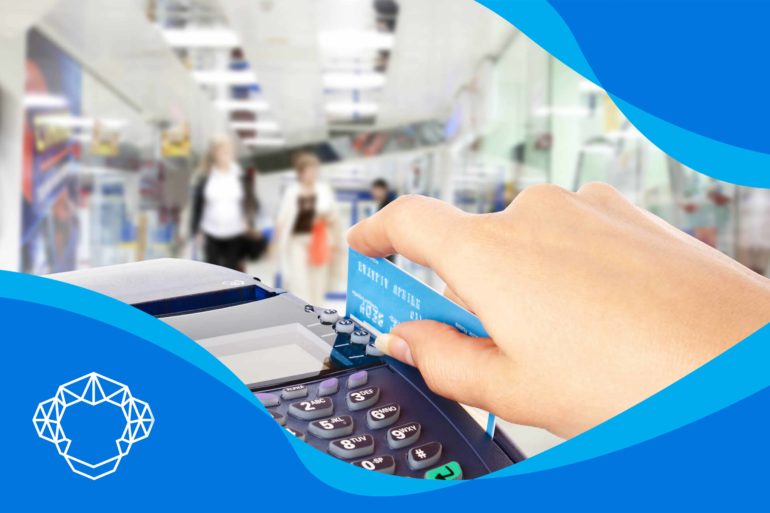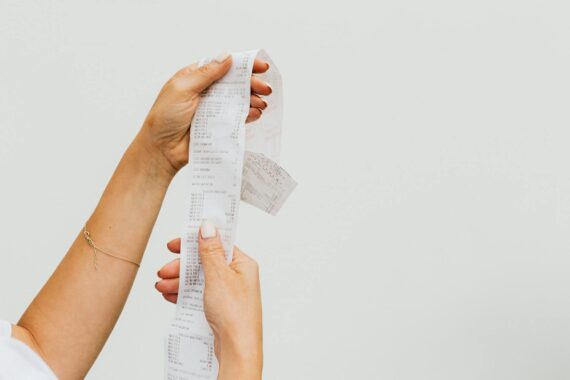When a customer finds an unauthorized charge on their bank statement or has an issue with a purchase, they will dispute it with their issuer. But how long to dispute credit card charge takes, and what does it mean for merchants?
So, how long to dispute credit card charge? You usually have a 60-day period to dispute a charge you don’t agree with once it shows on the credit card statement. The Fair Credit Billing Act establishes this time restriction. It also applies whether you’re contesting a fraudulent claim or a purchase that didn’t go as planned.
Let’s Start With the Basic Topics – What Is a Chargeback?
Customers need their protection tools. Sometimes, a purchase may not live up to the standard, or fraudulent activity has shown on the statement. Chargebacks are what allow customers to regain their funds back.
The definition of chargebacks is that they are forcibly reversed charging on debit or credit cards issued by the issuing bank or entity. This action usually occurs after a cardholder has disputed a CC charge. Cardholders dispute transactions that they believe were a result of abuse of their personal information or fraud.
When the use of non-cash payment methods became a regular thing, some merchants were accused of taking advantage of customers. There happened to be some dishonest sellers that exaggerated the prices of their goods or added an extra cost to the bill. The Fair Credit Billing Act of 1974, which established chargebacks as we know them today, was an attempt to remedy these concerns.
The Impact Credit Card Dispute Charges Make on Merchants
As for the CC statistics, the average online store today faces 1,740 fraudulent attempts monthly. Unfortunately, somewhere around half of these actions succeed. From the merchant’s point of view, disputes resulting in chargebacks have been a fast-growing issue for years, regardless of the size or types of businesses. This is something no business should ignore, especially considering the volume of disputed transactions filed by the consumers.
When it comes to card-not-present transactions, it is much harder to verify shoppers because a business never comes in contact physically with the cardholder. This is why these transactions are specifically appealing to scammers. Fraud attacks are more easily pulled off in this environment, and fraudsters attack in higher volume in a short period.
These situations make credit card fraud prevention and detection essential. It’s also vital for merchants to have PCI compliance as prevention when they are looking for the best CC processing for small businesses.
Why Do Charge Disputes Occur?
Merchants can see the whole process as unfair to them, but the disputes and chargebacks are meant to safeguard the customers. It protects the cardholder from these occurrences:
- Merchant’s error – the threat of disputes and forced payment reversal motivate merchants to provide outstandingly good customer service and avoid making errors on their accounts.
- Merchant fraud – chargebacks will act as a deterrent to scammers who pose as a legitimate businesses in order to sell counterfeit or sub-par goods.
- Criminal fraud – enabling consumers to enter the disputing process and get chargebacks are also a safeguard against frauds who use stolen personal information and credentials.
According to one analysis, payment disputes caused by illegal acts had cost merchants $20 billion in 2021. This is an 18% rise over 2020.
How Long to Dispute Credit Card Charge
Chargebacks can be a headache for everyone involved in the process. But while payment reversal may only cause stress for a customer, the deeper impact is felt by merchants and their businesses, especially if it occurs regularly. So, while it’s important to answer “how long do I have to dispute a credit card charge” from the customers’ perspective, it’s equally important for a business owner to understand how the process works.
How Long Do You Have to Dispute a Credit Card Charge? The Time Limit Set by Law
Each card network and the issuer will establish their own chargeback deadlines. However, in the United States, the legal minimum time restriction for initiating a chargeback is 60 days. Also, remember that most financial institutions will allow cardholders 120 days to take action for payment reversal.
Merchants Have a Time Limit to Respond to Chargeback Claims
The time limit for merchants to respond to disputes is also set by card networks, although it’s usually 30 days. This period is measured from the day when the chargeback claim is filed. You should keep this in mind when you are notified because it may have been only after a couple of days.
However, as a business owner, you should be familiar with the limits set by each CC company and the particulars of the cards your business accepts. For a Visa, it’s usually a 30-day period, although a 10-day limit may apply when deciding about arbitration. American Express has set the limit for merchants to 20 days and 45 days for MasterCard.
The Main Types of Merchant’s Errors That Can Cause Disputes
Merchant’s errors can affect both brick-and-mortar enterprises as well as different e-commerce business models. They can mainly be categorized into two main groups – billing errors and complaints from customers about products and service quality they pay for.
Billing Errors – The Most Common Causes of Disputes
One of the most common reasons for disputing payments is billing errors. For instance, if a customer notices that charges have been made after they have canceled a recurring payment, disputing may help them solve the issue. These are the examples of different errors:
- Transaction charges are set to a customer’s CC with the wrong amount or date.
- Different mathematical errors.
- Payments for products or services that were not delivered per agreement or that were not accepted.
- Not sending out bills to the current home address of the customer. That is under the assumption that the issuer has the most current home address update in writing, no less than twenty days before the cycle ends.
- Failure to post returns and other payments.
- Transactions for which customers ask for proof of purchasing in writing or an explanation. It usually comes with a claim of mistake or a clarification request.
Unauthorized transactions that show up on the bank statements of customers are a form of scam and are also considered a billing error. All of these errors only support the fact that a business should keep records of transactions on file for some time. Don’t let not keeping records of transactions for a certain period be one of the mistakes business owners make and the reason why you can not provide evidence against a false claim.
Products and Service Quality Disputes
Another typical occurrence when it comes to errors on behalf of the business is when a customer is unsatisfied with the quality of goods or services they have received. If a consumer receives goods that are damaged or otherwise in an unsatisfactory condition, and a business doesn’t offer a refund, repair, or replacement, there is a case for disputing.
However, not all purchases are allowed to be disputed, and the requirements are set by the Fair Credit Billing Act (FCBA). There are three of them, and the first is that the transaction must exceed $50. The second is that the purchase was made in the state the customer is located and within 100 miles of the home address of billing. And the third is that they have made an effort to settle the issue with the business first.

How Does a Consumer Initiate the Dispute Process?
There are many instances involved in the non-cash transaction process. Your enterprise can not begin to accept these kinds of payments without a reliable credit card processing company and its credit card processing services. These payments go through a payment gateway, and the funds end up on the account set up at the acquiring bank.
However, disputes will not depend on your choice of merchant processing company or different eCommerce payment options. Once a customer decides that a bill on their cards should be disputed, the whole process will depend on the CC company. The easiest way customer conducts these claims is through a phone number located on the back of their plastic.
The other way for a consumer to get a chargeback is through their specialized account for cards. They will be required to include all the information on the reason behind this decision. It can then be conducted through an online form.
A Purchase Using Cards Should Be Disputed With the Merchant Directly to Get Money Back
If the reason behind the claim is a purchase, the consumer is required to contact the business and try to find a solution together. That’s where good customer service steps in. FCBA requires the customer to make an effort in good faith to handle any issues with the purchase. If it doesn’t go smoothly, consumers can then file a claim. In the meantime, the charges are temporarily removed from the statement. It is billed or removed completely only at the end of the process.
Disputes Can Be Denied
Customers that have filed a claim are asking – “how long do I have to dispute a charge on my credit card?” While we’ve already stated that it may take from 60 to 120 days, depending on the CC company, the disputed bill can also be denied at the end of the process. When this happens, the bill is set back to the cardholder’s account specialized for cards, while they are also legally entitled to receive an explanation about the denial. Keep in mind that cardholders have the right to appeal this decision, and they will also receive instructions on how to do it from their issuer.
In the end, consumers can also seek disclosure through the Consumer Financial Protection Bureau. That is not their final way of disputing charges. They can also hire a lawyer as their last resort if they have evidence to provide, but it will also be costly to them.
It’s Best to Have Important Contacts Regarding Disputes
For any issues regarding a claim or a chargeback, you should contact the issuer of the cards in question. The table below contains important issuers and their addresses.
| Issuing bank or entity | Mailing address |
|---|---|
| Bank of America | Billing Inquiries PO Box 982234 El Paso, TX 79998-2234 |
| American Express | Billing Inquiries PO Box 981535 El Paso, TX 79998-1535 |
| Discover | Billing Inquiries PO Box 30416 Salt Lake City, UT 84130 |
| Citibank | Billing Inquiries PO Box 65006 Sioux Falls, SD 57117 |
| Capital One | Disputes PO Box 30279 Salt Lake City, UT 84130-0279 |
| Chase Bank | Billing Inquiries PO Box 15298 Wilmington, DE 19850 |
Get Only the Best Reliable Credit Card Processing Companies on Your Side
Frequent chargebacks are not good for an enterprise. It’s when the cardholder requests that the bank intervenes instead of pursuing the matter with the business. The enterprise loses both the income from the sale and the value of the product when this happens. Overhead expenses such as shipping, fulfillment, and interchange fees are also lost. Finally, every chargeback requires the business to pay a fee.
However, some of these disputes can be avoided by protecting yourself when choosing the right merchant services, credit card processing, and applying for a merchant account. You can freely contact us, and we will let you know about the best merchant services rates for your enterprise. Choosing the right third-party payment processors can do wonders for your business, so don’t hesitate to reach out to us.







